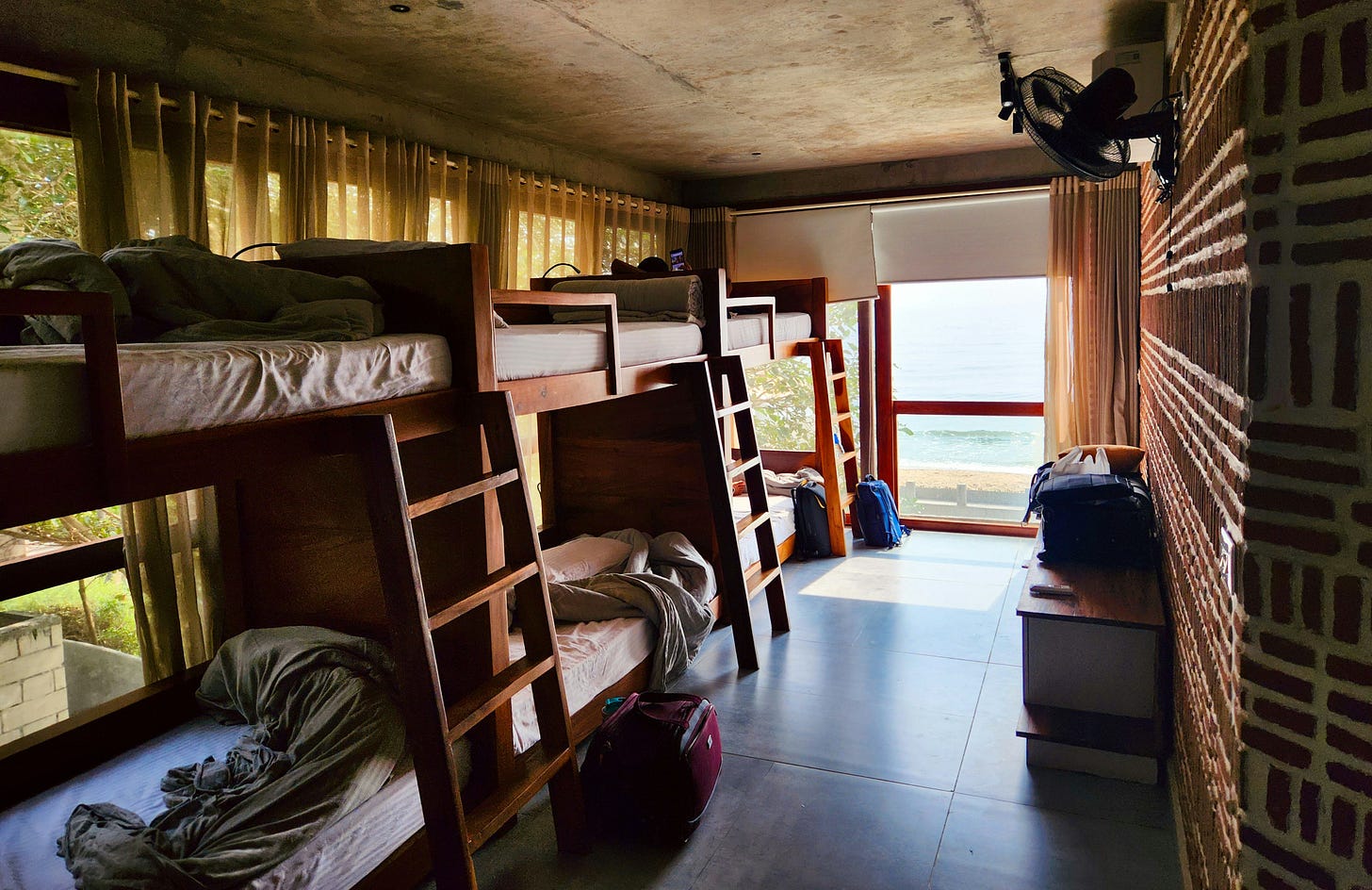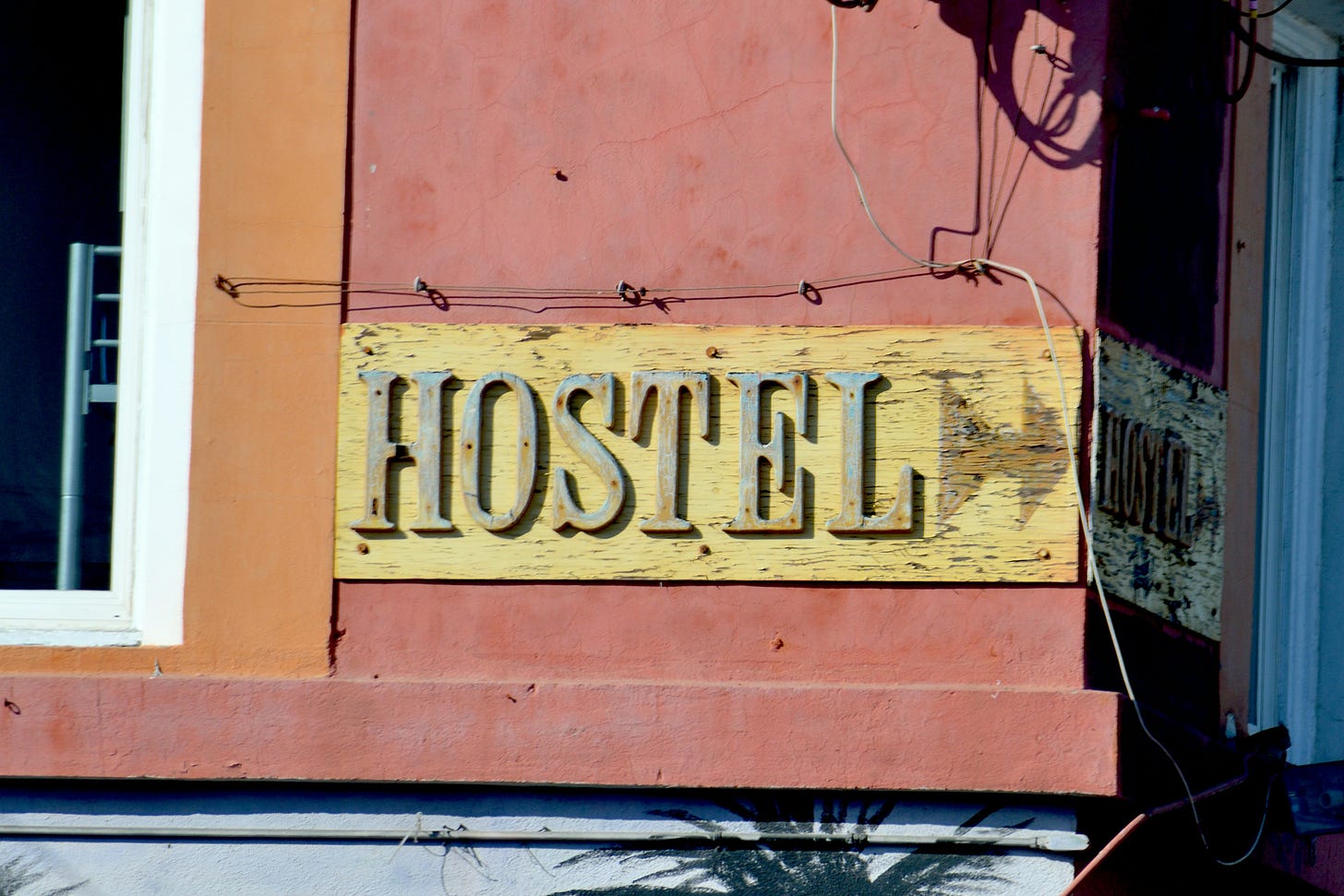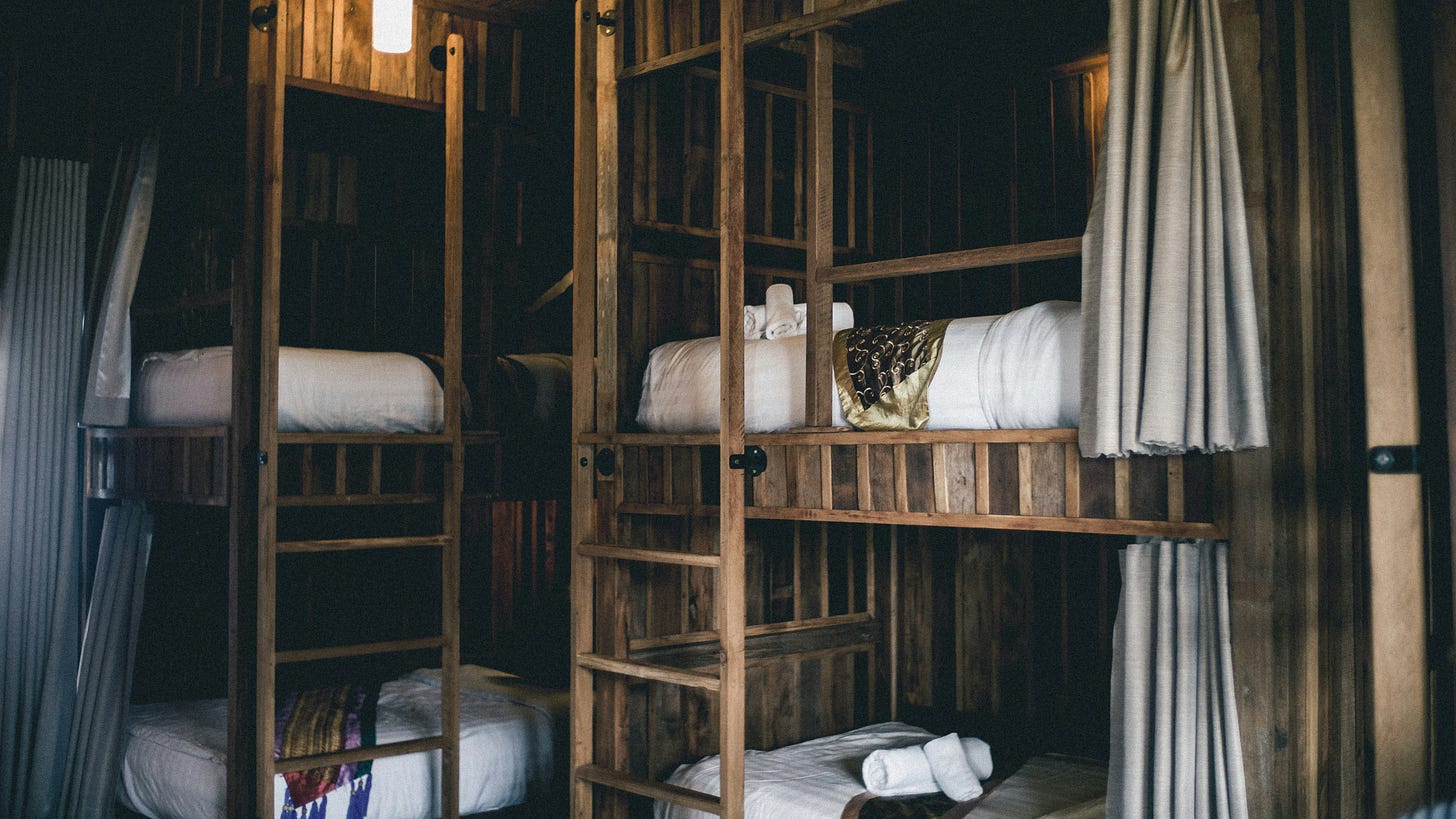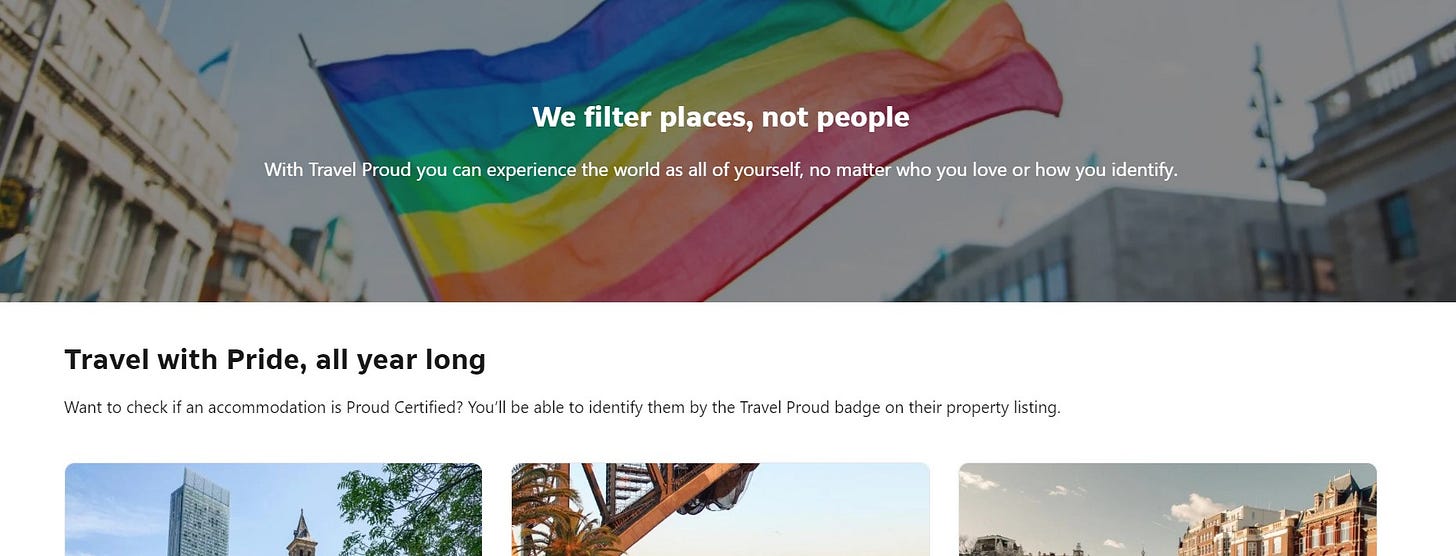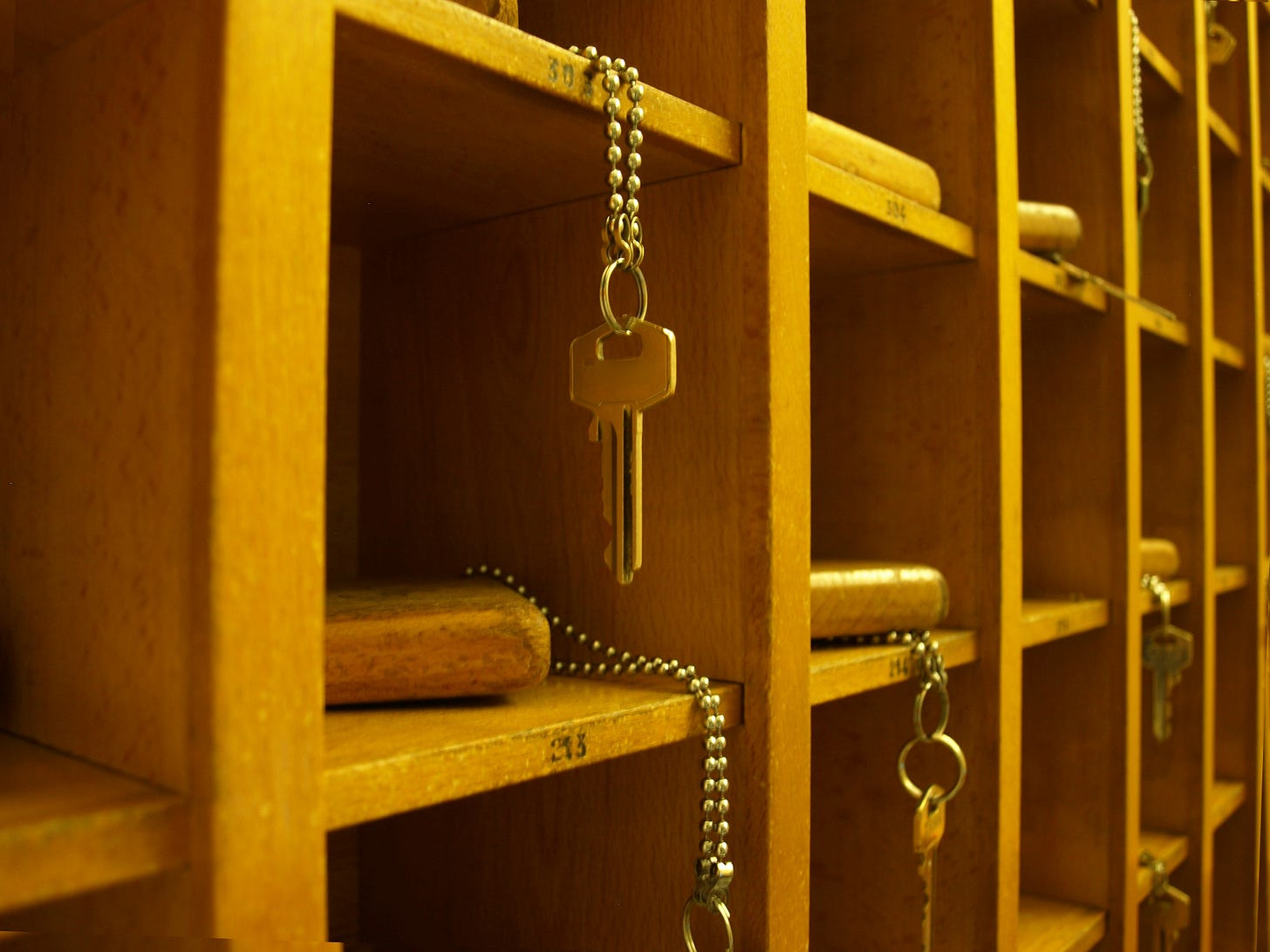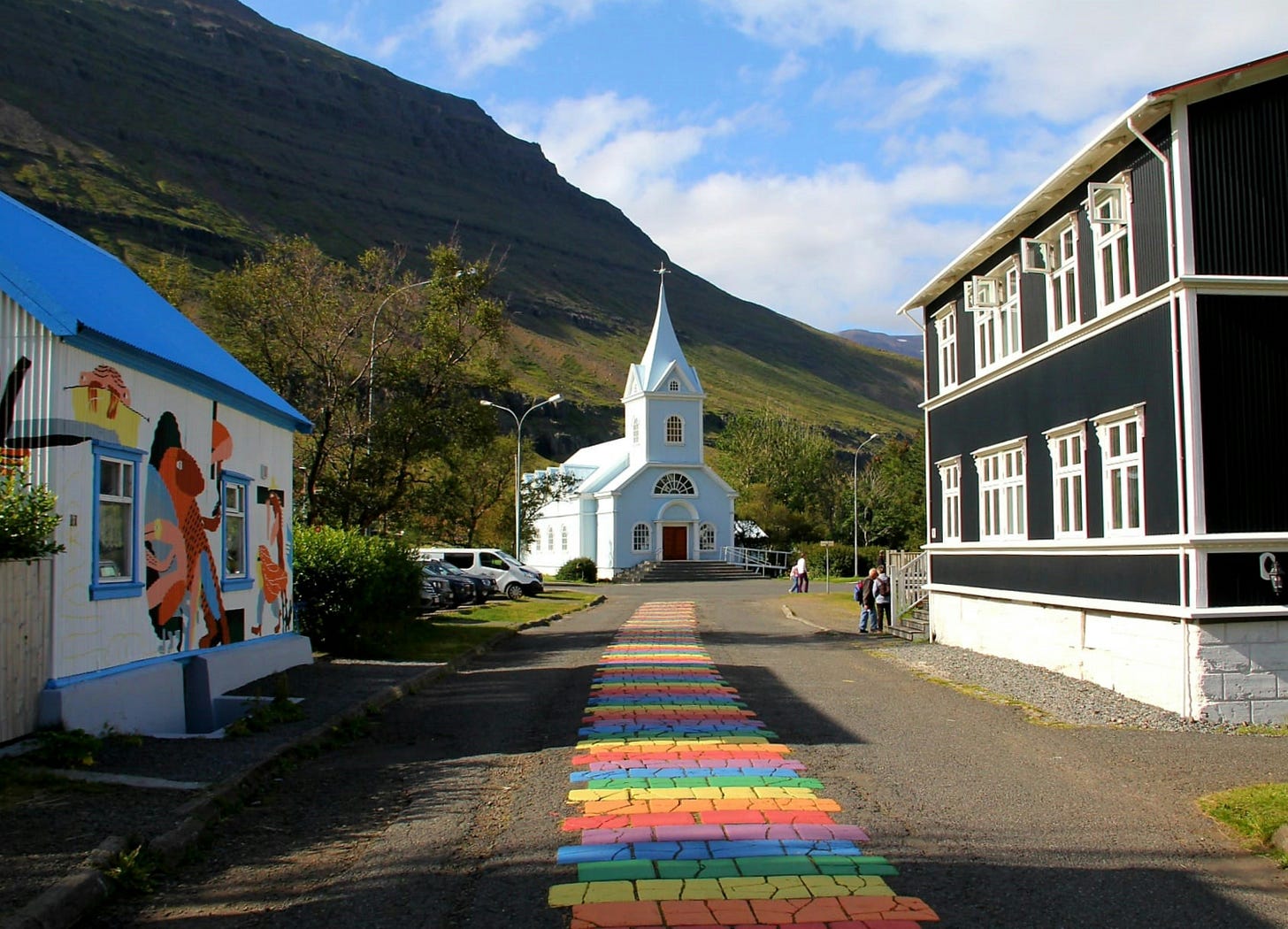Very non-binary problems: the hostel bedroom matrix
Blue pill or red pill? Single-sex or mixed dorm?
Those who travel on a budget will know how appealing paying a fiver for overnight accommodation is. Whether you are in central London or in the Amazon forest, chances are there is no cheaper option than a shared dorm with 8 to 8,000 beds.
For many (me included), hostels evoke great memories of making friends from across the globe and being within walking distance to a turquoise lagoon, but also bad memories of funny smells, chaotic encounters, and loud snorers.
For queer folks, there is often another layer of worry attached to it: will I be judged if I pick a single-sex dorm? What do I do if there is no mixed dorm? What if someone is hostile to me? Where do I fit?
The mixed dorm option
Intuitively, mixed dorms should work well if you are not a fan of gendered spaces in general. The reality is they are often cheaper than single-sex dorms, though much more infrequent.
According to Booking.com, single-sex outnumber mixed dorms 5 to 1. They sell out 35% faster than single-sex, and that is when they are even an option.
One third of hostels outside of Europe don’t have a mixed dorm option either due to limited space or because they don’t see the need to have a third option.
I know folks who don’t mind mixed dorms, but much prefer single-sex when given the option.
But can you pick a single-sex dorm if you are non-binary or trans?
The single-sex option
The short answer to the above is yes.
The YHA
Is the only top scorer on this. According to their guidelines and mission statement, all employees go through inclusion training, and there are policies in place to support trans and non-binary travellers if issues arise.
In the words of their head of comms:
“We have a clear Transgender and Inclusivity policy in place since 2016 that has worked very well. We train our staff to apply this policy in an inclusive and sensitive manner. Together with that, have a choice of private and shared accommodation that caters for all needs. Our policy allows any person to stay in the dorm they align their gender with.”
Booking.com
On the other hand, was the first mainstream provider to launch a ‘Proud certified’ where they assess accommodation depending on their LGBTQ inclusive policies. Better than nothing, but a long way to go, considering they are the top provider of shared accommodation worldwide.
Hostelworld
Falls to the bottom of this very short list. Sadly, since hostels are their bread and butter. While their online blogs abound with queer-friendly experience, there is no procedure in place when it comes to queer travellers.
All that is good and nice, but if you’ve ever tried checking in with your documents and got a funny look, you will know being ready to argue your case is a wise policy.
Q: My hostel is causing problems because of my official ID and trans/non-binary status: what do I do?
A: be ready to show relevant documents to support your ID or passport. Name changes, official records medical or non-medical, and school ‘alias’ documents are all valid proof of ID. Have a digital folder where you have electronic copies of those. I don’t recommend taking the physical versions with you, unless needed at the airport or at border control.
Like in every occasion, flexibility and understanding depend on where you go and who you meet. Hostels in the ‘Western’ bracket of the world tend to be more nonchalant about genderqueer folks picking single-sex dorm options. But even then it is hard to generalise.
I was refused check-in at a hostel (or other accommodation) because of my trans/non-binary status: what now?
If you booked with an external public provider (e.g. not a private landlord), get in touch with them immediately. Your status can’t be infringed by accommodation providers, simply put because gender is not a requirement of any contract you signed when you booked. You promised to pay X amount for a stay on X date, but any other detail is not legally binding.
Special booking requests
Some of you may be thinking that flagging your trans status with the place beforehand is the best policy to ensure everything goes smoothly.
Communication is key, and hospitality being an intrinsically welcoming industry means people may be receptive and nice to you. It doesn’t hurt to put that extra ‘special request’ if you want to be 100% sure they’ll be prepared to welcome you in.
Personally speaking, I don’t love doing that. There is something about declaring who you are in advance that irks me, and many others I know. First of all: why oh why, must we come out to strangers all the time? And second: what if I just want to go on about my trip, and avoid any unconscious bias?
Keeping in mind the destination is always the wisest way to approach it. There will be places where sharing your trans or non-binary status won’t cause any problems, and places where you should be cautious.
At the end of the day, it’s important to debunk the myth that LGBTQ+ organised trips are the only way to see the world safely if you are queer, and accommodation plays a huge part.
Sure it’s nice to know someone has your back and the place you’re staying is LGBTQ+ friendly, but different folks travel for different reasons and cheap travel options like hostels should keep doing what they are set to do: be accessible to all.


